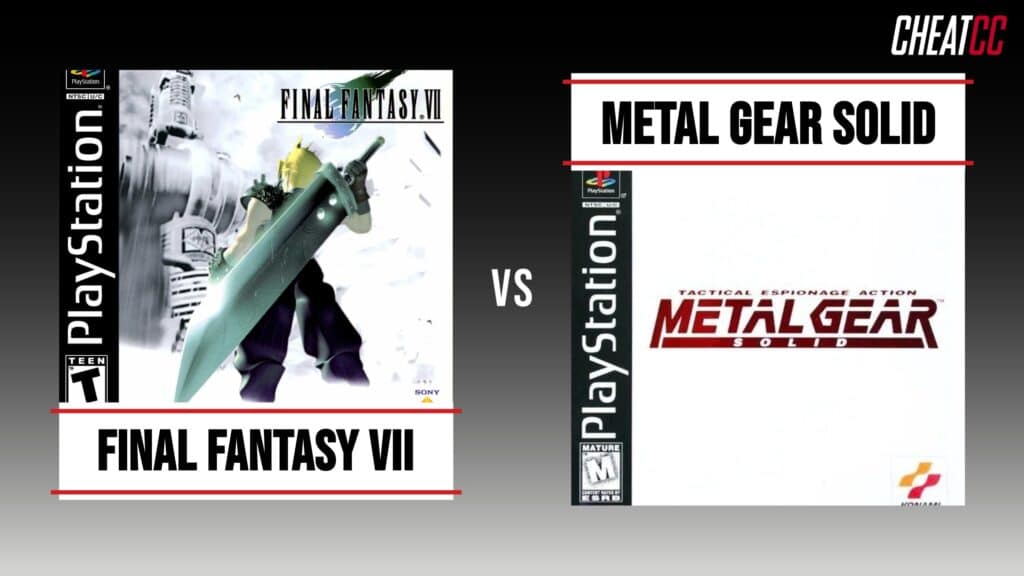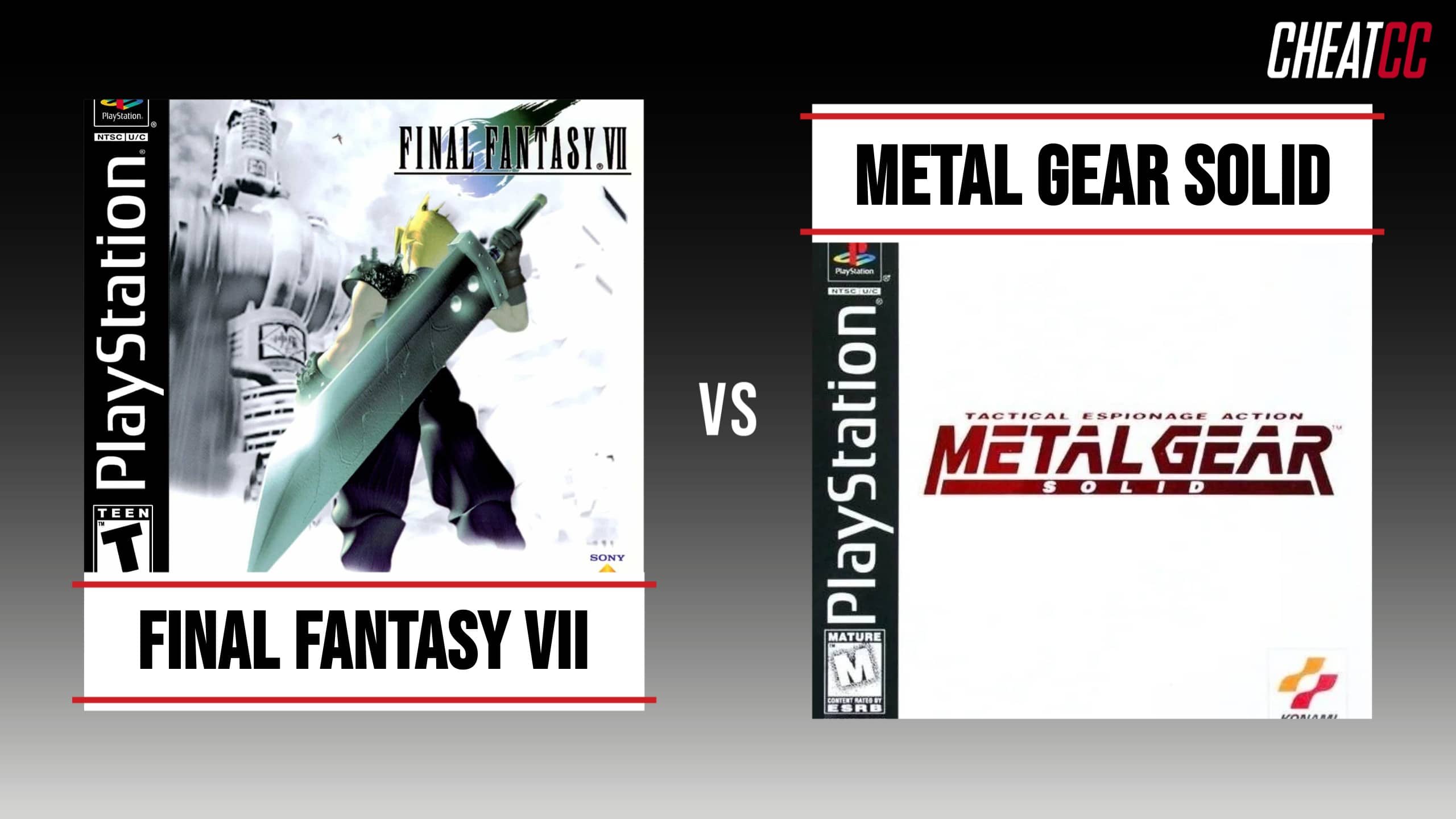The 5th generation of consoles is inarguably one of the most important and transformative periods in the history of the medium. Not only did the corresponding years see the transition from 2D to 3D, it also saw an unexpected entry into the console wars with the launch of Sony’s PlayStation console. The PlayStation became the best-selling video game console of the 5th generation, a feat bolstered by the platform’s disc drive and better capability at rendering 3D graphics than its primary competitor — the Nintendo 64. And, as one might expect, the success of the PlayStation largely comes as a result of it having some of the most important games ever made released on the console.
Several new franchises that endure to this day mark their debut on the PlayStation, but other notable ones chose to leave Nintendo’s cartridge-based hardware behind in favor of embracing the CD-ROM and all the new capabilities it afforded. One such franchise is Final Fantasy, which after years of a successful partnership between developer Square and Nintendo would sign a new exclusivity deal with Sony. The result is one of the most successful and prolific periods in the company’s history, with Square’s PS1 library being the stuff of legend. Years later though, another new franchise with origins on the NES would arrive and signal a tectonic shift in how video game stories are told.
Metal Gear Solid‘s release in 1998 came hot on the heels of Final Fantasy VII‘s success, and both games are largely responsible for the PlayStation’s success and adoption. The question now is which game is the most definitive title on the original PlayStation.
Final Fantasy VII vs Metal Gear Solid: Side-by-Side Comparison

The PlayStation’s launch in 1995 marks one of the most significant moments in gaming history if for nothing else than the titles that would eventually arrive on the system. 1996 saw the debut of Resident Evil, 1997 the first 3D Final Fantasy (and first on a non-Nintendo console) with Final Fantasy VII, and then 1998 brought players the release of Metal Gear Solid. In terms of sales and franchise longevity, Resident Evil is a hugely important PlayStation-centric franchise, but it doesn’t come close to the critical acclaim and landmark status of Final Fantasy VII and Metal Gear Solid. Taking a look at these two marquis titles side-by-side paints an interesting picture of just how unique they are, despite their obvious similarities.
| Characteristic | Final Fantasy VII | Metal Gear Solid |
|---|---|---|
| Release Year | 1997 | 1998 |
| Critic Review Average | 92 | 94 |
| User Review Average | 82 | 84 |
| Total Sales | 11 million units | 6.14 million units |
| PS1 Greatest Hits Release | ✅ | ✅ |
| FMV Cutscenes | ✅ | |
| In-Engine Cutscenes | ✅ | |
| Director | Yoshinori Kitase | Hideo Kojima |
| Introduced New Genre to Millions | ✅ | ✅ |
| Main Contribution to Medium | In addition to helping the Final Fantasy franchise achieve mainstream success, FFVII is one of the games responsible for the proliferation of Full-Motion Video (FMV) cutscenes and pre-rendered backgrounds | Thanks to the talents of creator and director Hideo Kojima, Metal Gear Solid is one of the games responsible for video games telling more mature and nuanced stories, using cinematic techniques, and the paradigm shift of games being more than just “for kids” |
Final Fantasy VII vs Metal Gear Solid: 5 Must-Know Facts
Here are 5 must-know facts about Final Fantasy VII and Metal Gear Solid:
- Both Final Fantasy VII and Metal Gear Solid are responsible for major contributions to the medium of video games and the approaches of other creators in crafting their narratives. While one leans more on technology for its contributions, the other’s influence comes from its poignant and timely subject matter.
- Although both Metal Gear and Final Fantasy have their roots on the NES, it was not until their PS1 releases that both franchises saw mainstream success and crossover appeal. The result is that Final Fantasy VII and Metal Gear Solid are responsible for helping to make both franchises endure to this day.
- The Final Fantasy franchise is undoubtedly responsible for laying the foundations of all JRPGs, but Final Fantasy VII influenced both JRPGs and Western RPGs in ways that still reverberate into the modern era. Similarly, Metal Gear Solid is largely responsible for the popularization of the niche stealth-action genre.
- Although Final Fantasy VII‘s sales far exceed those of Metal Gear Solid, the critical reception is surprisingly lower than that of Kojima’s stealth masterpiece. Metal Gear Solid may fall behind in sales but it definitively has greater critical acclaim, if only slightly.
- Metal Gear Solid‘s use of in-engine visuals for its cutscenes helps the game to have a seamless transition between gameplay and cinematics, as well as making it more timeless and consistent in its visual presentation than Final Fantasy VII.
Final Fantasy VII vs Metal Gear Solid: Both Games Changed the Industry
In terms of impact on the industry, both Final Fantasy VII and Metal Gear Solid are landmark titles. Final Fantasy VII is responsible for bringing its respective franchise unprecedented success and helping to make RPGs more mainstream, while also popularizing Full-Motion Video cutscenes and the use of pre-rendered backgrounds. Metal Gear Solid, on the other hand, uses cinematic techniques in its visual direction and storytelling that help to introduce the paradigm shift of video game stories emulating movies and embracing more adult subject matter.
Final Fantasy VII vs Metal Gear Solid: Each Franchise’s Staying Power
Final Fantasy continues to endure as one of gaming’s most important and long-running franchises, having just celebrated its 35th-anniversary last year and releasing its 16th mainline entry in June of this year. Conversely, Metal Gear Solid remains in a bit of a holding pattern following creative mastermind Hideo Kojima’s falling out with publisher Konami. Since his very public departure from the company, the Metal Gear franchise has unfortunately stagnated, with the last mainline entry being 2015’s Metal Gear Solid V: The Phantom Pain. That said, this year did see the release of the Metal Gear Solid Master Collection Vol. 1, which packages the first three games in the Metal Gear Solid series and brings them to modern consoles.
Final Fantasy VII vs Metal Gear Solid: Influence on Their Genres
Without games like Metal Gear Solid (and, to a lesser extent, other PS1 classic Tenchu), the stealth-action genre would likely not exist as it does today. Further, action games that include occasional stealth sections owe a huge debt of gratitude to the design and implementation of Metal Gear Solid‘s gameplay. Similarly, Final Fantasy VII is one of the first major RPG franchises to make the transition to 3D, and its design and gameplay can see their influence across dozens of titles on both the PlayStation and Sega Saturn. Further, Final Fantasy VII‘s influence on its own franchise is still largely felt to this day, culminating in Square Enix remaking the game as a trilogy of standalone titles.
Final Fantasy VII vs Metal Gear Solid: Sales and Critical Reception
Although both Final Fantasy VII and Metal Gear Solid can count themselves among the best games ever made, they differ ever so slightly in terms of their sales and critical reception. Final Fantasy VII‘s impressive 11 million units sold on the PlayStation version of the game is unprecedented in terms of its parent franchise’s success at the time, signaling the transition of Final Fantasy from niche RPG to mainstream juggernaut. Metal Gear Solid‘s impressive 6 million units is no small feat either, but it obviously pales in comparison to the numbers put forth by Final Fantasy VII. That said, sales are only one part of the equation, and when it comes to critical acclaim, Metal Gear Solid holds the higher review aggregate scores among both critics and users.
Bottom Line
Asking any fan of either franchise which game in their respective series is their favorite will almost surely lead to an answer of Final Fantasy VII or Metal Gear Solid. The impact that both of these games have on their franchises, the success of the PlayStation, and the medium as a whole can’t be overstated. Many consider Final Fantasy VII to be the defining moment of the franchise, whereas Metal Gear Solid‘s most popular choice for best game in the series belongs to Metal Gear Solid 3: Snake Eater.
Still, the timeless quality of Metal Gear Solid‘s visuals helps the game to hold up better in a modern context than the inconsistent 3D character models and pre-rendered backgrounds of Final Fantasy VII. In terms of sheer sales and driving the PlayStation to become the winner of the 5th console generation, though, that honor goes to Final Fantasy VII, and it helps make a strong case for the game being the defining title of the PS1.
